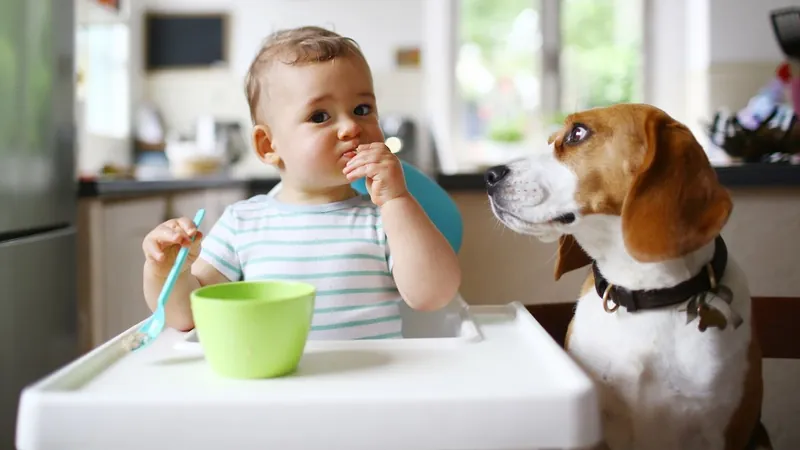
The Surprising Truth: Are Cats and Dogs More Intelligent than Babies?
2025-01-04
Author: Arjun
The Intelligence Landscape
When comparing intelligence, it’s essential to consider the different dimensions we use to gauge smarts. Human babies, unlike many animals, take much longer to master even basic functions; they need months, or even years, to walk, speak, and think critically. Meanwhile, certain animals seem to come pre-equipped with impressive skills right out of the gate.
Dogs: The Canine Geniuses?
Stanley Coren, an esteemed psychologist from the University of British Columbia, has dedicated countless hours to studying canine intelligence. By employing a psychological measure known as "mental age," Coren has drawn fascinating conclusions regarding the cognitive abilities of dogs compared to that of infants.
While direct comparisons are tricky, Coren notes that dogs possess remarkable skills—a vocabulary that can reach up to 165 words on average! The extraordinary border collie, Chaser, memorized over 1,000 words, highlighting just how capable some dogs can be. Amazingly, dogs can also rudimentarily "count," with some trained retrievers capable of keeping track of multiple objects during a hunt.
Even more surprising, research indicates that a dog's cognitive ability is akin to that of a 2.5-year-old child regarding certain skills, such as word recognition and emotional understanding. While this may seem like a stretch, it poses the question: Can we think of dogs as our four-legged toddlers?
Cats: Stealthy and Smart?
While research on cat intelligence is less extensive, the findings are equally illuminating. Jennifer Vonk, a psychology professor at Oakland University, emphasizes that cats excel at problem-solving and adaptability. Historical studies, like those by Edward Thorndike, demonstrated that cats can learn and improve their skills through experience.
Additionally, studies show that cats have strong memory skills and a comprehension of object permanence—the understanding that items exist even when they’re out of sight—comparable to that of human infants. It appears cats might even surpass toddlers in associating words with images!
However, Vonk cautions against directly comparing cats and dogs with human babies. Each species has evolved in ways that align with their ecological needs. Cats, for example, are unparalleled hunters, relying on their sense of smell and physical agility rather than cognitive tasks we typically associate with human intelligence.
The Verdict?
In conclusion, while dogs demonstrate skills and cognitive abilities akin to toddlers, and cats showcase impressive problem-solving and memory capabilities, it becomes clear that intelligence is multifaceted and cannot be pinned down strictly to human comparisons. Each species has strengths catering to their survival needs—making them uniquely intelligent in their own rights.
So next time you find your dog or cat doing something surprisingly smart, remember, it’s not just your imagination. They might just have a mental capacity akin to toddlers, elevating the age-old competition of pets versus babies to a whole new level!
Are you team fur baby or baby human? The debate continues!
 Brasil (PT)
Brasil (PT)
 Canada (EN)
Canada (EN)
 Chile (ES)
Chile (ES)
 Česko (CS)
Česko (CS)
 대한민국 (KO)
대한민국 (KO)
 España (ES)
España (ES)
 France (FR)
France (FR)
 Hong Kong (EN)
Hong Kong (EN)
 Italia (IT)
Italia (IT)
 日本 (JA)
日本 (JA)
 Magyarország (HU)
Magyarország (HU)
 Norge (NO)
Norge (NO)
 Polska (PL)
Polska (PL)
 Schweiz (DE)
Schweiz (DE)
 Singapore (EN)
Singapore (EN)
 Sverige (SV)
Sverige (SV)
 Suomi (FI)
Suomi (FI)
 Türkiye (TR)
Türkiye (TR)
 الإمارات العربية المتحدة (AR)
الإمارات العربية المتحدة (AR)